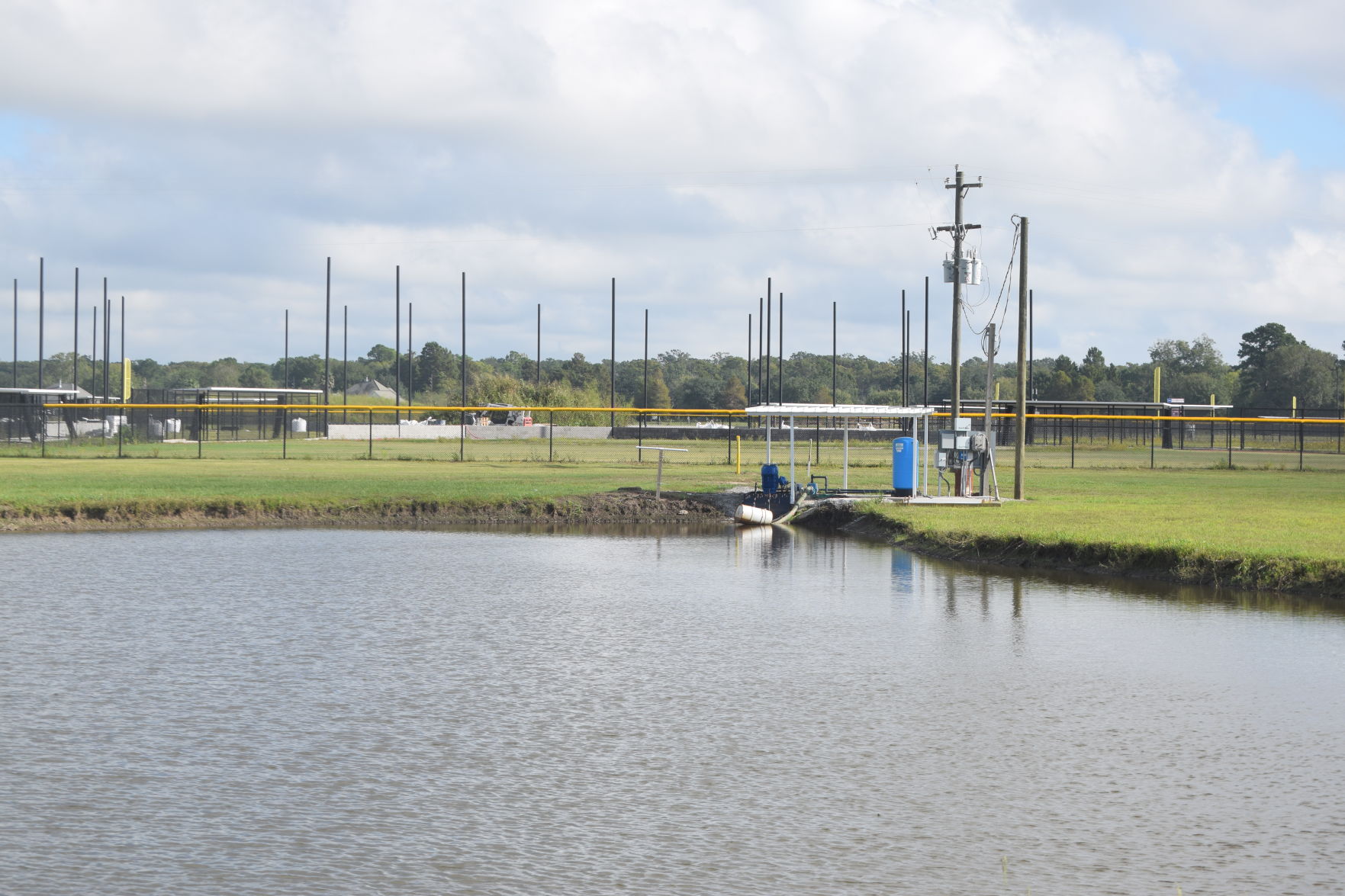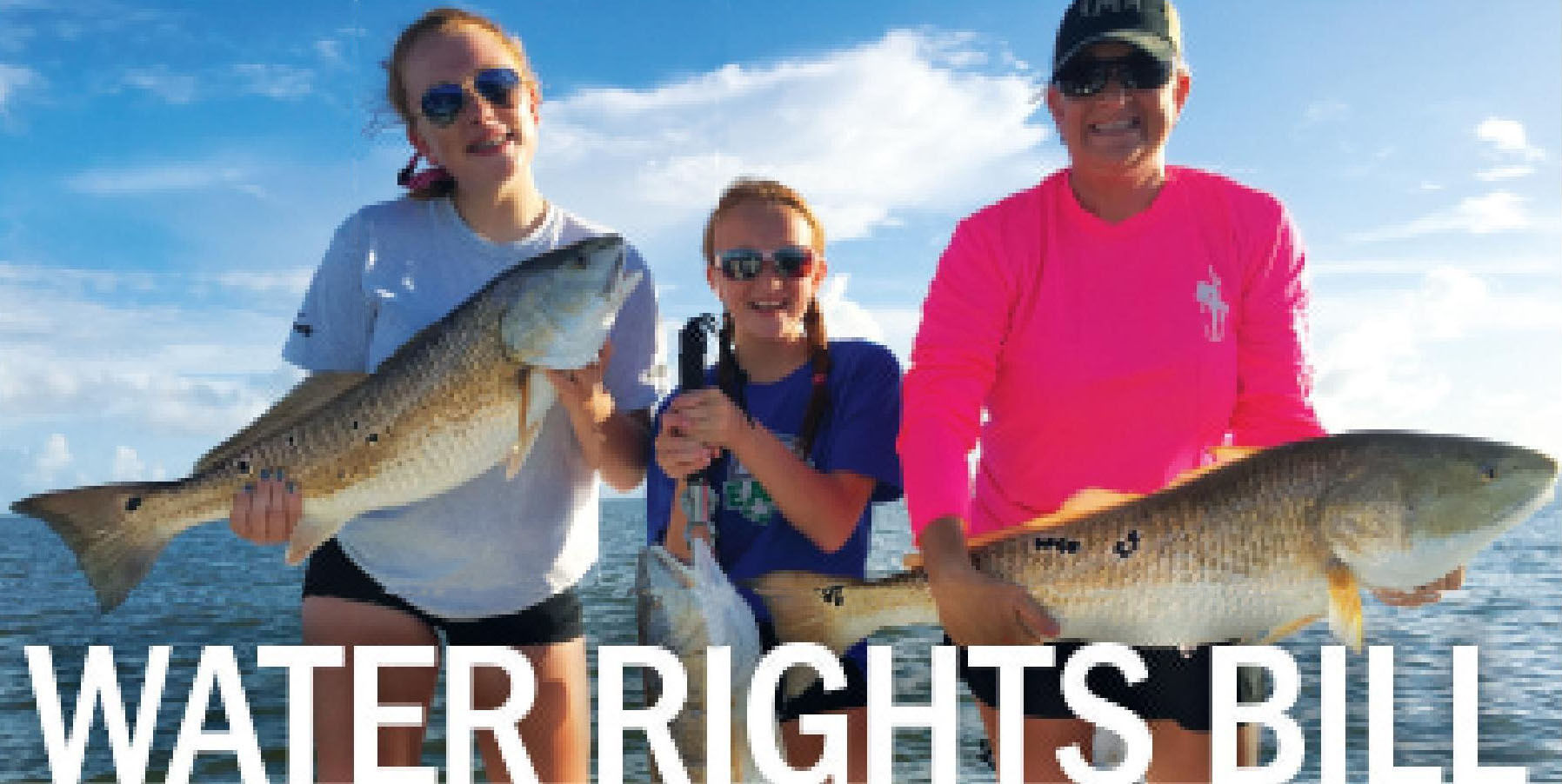
Rec district chooses attorney – But decision to hire one never took place in public
April 20, 2018First Amendment to the Constitution of the United States
April 20, 2018Louisiana fishermen inched closer on Tuesday to re-gaining access to waters that are currently deemed private by state law.
And by the time this paper hits newsstand, even more progress may have been made.
House Bill 391, which was authored by State Rep. Kevin Pearson (R-Slidell) passed through committee last Tuesday, which moved the bill to the House of Representatives where it was debated on Tuesday in Baton Rouge.
To get to the House, Committee on Civil Law and Procedure heard discussion about the bill, then passed it forward to the next level of government by a 5-3 vote.
Reps. Raymond Crews, Gregory Cromer, Julie Emerson, Randal Gaines and Alan Seabaugh voted yes to send the bill to the House. Reps. Robby Carter, Sam Jenkins and Gregory Miller voted no.
Local Rep. Tanner Magee is also on the Committee on Civil Law, but he did not attend the meeting.
The meeting last Tuesday was well attended and several outdoors lovers turned out in support of the bill, which aims to change laws regarding land ownership and water rights in Louisiana – a hotbed topic which has been debated continuously among outdoorsmen over the past several years.
Throughout the week, outdoors lovers circled the wagons again and asked for support when the discussion took place in the House.
Our paper published before that took place, but message board banter would indicate that a big crowd again would turn out in support of the bill.
Since the bill has been authored, several outdoors organizations have supported it, including B.A.S.S. and Back Country Hunters and Anglers, among others.
As it’s been progressing forward through government, the hill also been amended to make it easier to be enforced.
One amendment pertains to waterfowl hunters who were concerned that the hill wouldn’t allow access to property during hunting seasons. Another would only allow property-permitted gates constructed before March 2, 2018 to remain.
If eventually passed, state recreational fishermen will regain the access to waters that are navigable, but are technically private because of Louisiana land ownership laws, which give land owners control over water that’s over the dirt on land in which they own.
Because of erosion and other environmental factors, waters that were once public have become private in recent years and law enforcement have started issuing citations to people in violation – many of whom were not aware that they were in violation at all.
Folks on both sides of the issue spoke during the hearing last Tuesday and did so again yesterday.
Rep. Pearson said he crafted the bill because he wanted to return fishing to the people. He said Louisiana is Sportsman’s Paradise, but that the laws have threatened the validity of that moniker.
“It shouldn’t be called that right now,” he said.
Anglers, fishing teams and others who love the water spoke before and after the meeting. Many said that they respect land ownership rights, but feel as though the state’s current situation is not fair.
“We just want to fish,” Norco native and avid outdoorsman Pete Moreau said. “That’s all we want – we just want to be able to take our families out on the water without having to worry about whether or not we are about to be kicked out of our honey hole.”
But folks on the other side of the issue said it’s too complicated an issue and that there s more debate and discussion that needs to be done.
Rep. Bret Allain (R-Franklin) said he, himself, is a land owner, and he has concerns about the bill.
He said that, if passed, the situation in the state will get worse because land owners will make efforts to restrict waterways.
“You will see people blocking off canals on their property.” Allain said. “You will see a lot of efforts to restrict access. And I think you will see a lot lees access than what we have now. And I think what you win see is that more harm will be done than good.”
Other landowners stressed their concerns about liability and insurance issues with people accessing their land.
A property owner said that he has a camp in the marsh that’s been broken into several times since last year. He said if the hoi passes, he believes it will give a ‘green light’ for more people to do the same.
“It’s not right,” said the property owner who asked to remain anonymous. “Just he-cause 100 people or 1,000 people say something on social media, it doesn’t make it right.”
Paul Frey, executive director of the Louisiana Landowners Association, had lobbied against the bill Opposition was rooted in concerns for liability of landowners. the right of people to do what they wish with what has been established – according to the group – as privately owned land in Louisiana, even if it did lay beneath the tide, and other issues.
The cost to the state for lawsuits stemming from passage of the bill, opponents have warned, will be great.
Incidents of violence. Prey has argued, were isolated and not related to any people in his organization.
Tuesday was a bag day far the bill. Visit HoumaTimes.com to see exactly what happened when it accelerated up in government.
After debate, protocol would be for it to come to a vote. But sometimes if debate is not indicating that a bill will be passed, the author may table it or eliminate it altogether before a vote ever takes place.
If voted an and passed, the bill would then head to the Senate where the same process would occur.
The final step is Governor John Bel Edwards’ desk where bed either veto or sign it Into law.











